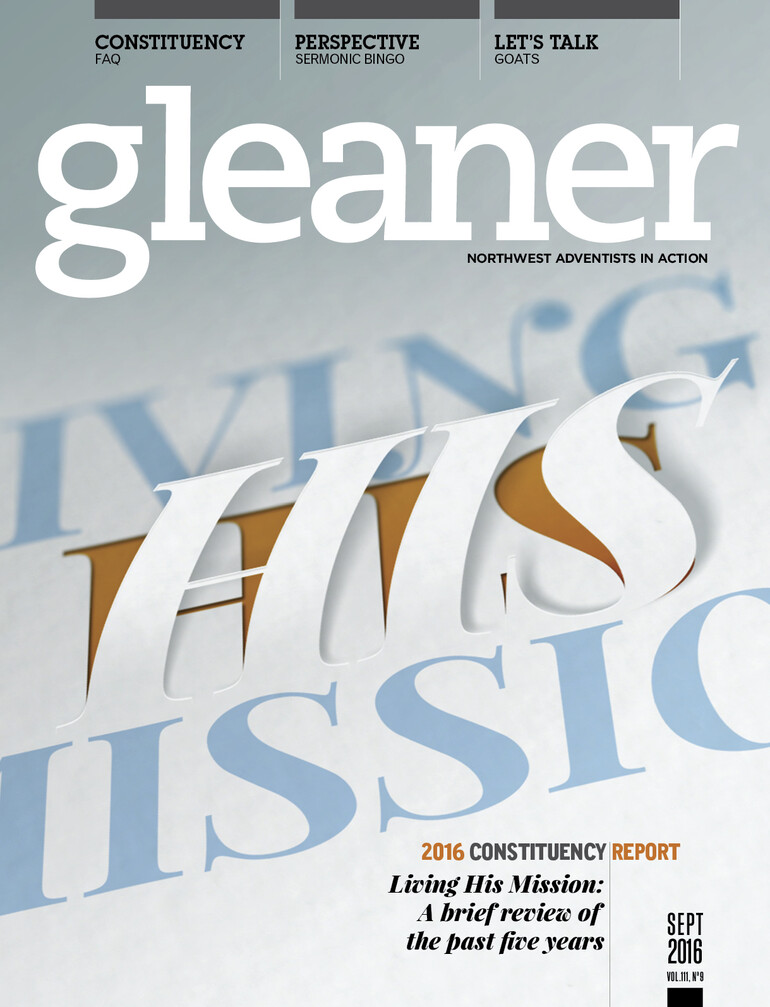Last month I commented on some practices church members participate in, which elicited some positive and some consternated responses. Good; that was the point — and I had some very good conversations as a result. However, since I gave church members a hard time, it is only fair to turn the tables on my colleagues and me. Having recently completed a research paper on homiletical pedagogy (how we teach preaching), I feel in a particular ornery mood in regard to the sermons we ministers deliver to our congregations. Therefore, I want to offer you a game: sermonic bingo.
This idea struck me during this past camp meeting season, when I noticed a myriad of predictable phrases and practices that cropped up each time a pastor took the pulpit. When I shared the idea with a research population of whoever was sitting next to me, they expressed delight. In this preliminary version, I offer you some phrases and practices that, in this pastor’s humble opinion, should be eliminated from preaching. Forever.
Feel free to take this article to church and count how many times your pastor employs these terms and tactics. I have been guilty of these as well, so this is not only a good reminder but also an open invitation to my congregation to play bingo. Here we go:
1. Amen Begging
This includes “Amen?” plus “Can I get an amen?” and “Would you say amen?” First, according to a friend on Twitter, the word “amen” appears 57 times in the Bible and never is it in the form of a question. Second, you CAN get an “amen” if you preach well. Third, I would NOT say amen if you have not given me something to say amen about. These phrases are almost as bad as the “good mornings” repeated with increasing volume in order to wrestle a sign of life from the congregation. I like amens in church, but only when they are genuine. Please, I beg you, stop begging.
2. “Um”
Every “um” in the sermon represents an hour of preparation that didn’t happen. Seriously, they even talk about this in high school speech classes. For professional speakers, with college and university training, “um” is unbecoming. Once or twice, if the sermon is on an especially complex or difficult topic, you might find some grace; but multiple um-ing on a regular basis is the sermonic equivalent to Chinese water torture on a congregation.
3. “We all know … .”
If we all know, why are you bothering to tell us? Secondly, we don’t all know. Unless the only people who attend church are biblically literate Adventist Christians (and sadly, this may be the case for some churches), you need to take a moment and explain who Paul is, what “sanctification” refers to, why Daniel was thrown in a lion’s den. Multiple researchers like Pew, Barna and Kinnaman release studies each year detailing the increasingly secularization of the population. If we want to reach people outside of the church, we need to use inclusive language that orients them to the text. Quick tip: While people are turning/tapping/scrolling to a Scripture passage, give a 30-second orientation to what it’s about.
4. “How many of you have ever … ?”
While not intrinsically bad, this phrase is used often enough to where it becomes predictable and almost functions as a cousin to amen begging. It elicits a response, sometimes, from sleepy congregations; but it is far better to share a compelling experience where people supply their own smiles, nods, grunts and laughter. If you must use it, be creative. “How many of you like breathing?” is too obvious. Something like “how many of you have ever been trapped under a burning train car?” may capture people’s attention a bit more.
5. The Ersatz Conclusion
Otherwise known as “circling the airport,” this makes people angry. If a speaker says “one more story,” or “in conclusion,” they better be ready to end everyone’s suffering. Preaching includes truth-telling, so when preachers tell people they are about to end and carry on for another 20 minutes, they have mixed truth with error. Lies, I say! Remember my friends, just because you are in prophetic time, doesn't mean your audience is.
Well, hopefully you have fun with this and challenge us preachers in our role as presenters of the gospel. One note of grace though, in regard to your pastor. The Bible tells us that the apostles spent a lot of time on truth-telling: “But we will devote ourselves to prayer and to the ministry of the word” (Acts 6:4). If your local minister frequently makes sermonic faux pas, it may be good to ask if the congregation protects his or her time to study and prepare.











